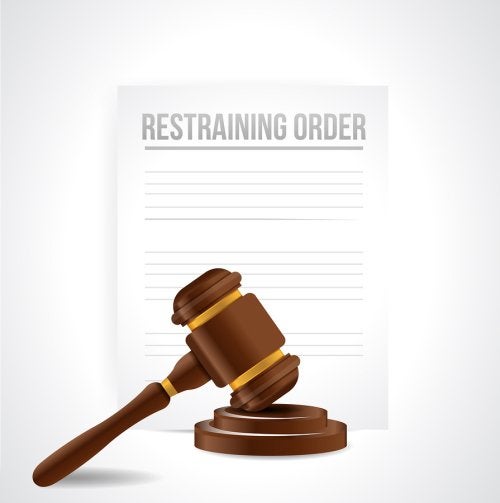-
Common Violations of Custody Agreements
Ideally, both parents would wholeheartedly follow child custody agreements and work together cooperatively for the best interests of the children. Violations of custody orders only harm the child, and unfortunately, they are quite common. When child custody issues affect families in Owings Mills, a divorce attorney can help the non-violating parent find a good solution. It’s advisable to take action sooner, rather than later. Unless the violation was an honest mistake, it’s quite likely that the violating parent will repeatedly test the limits of the other parent’s patience.

Parental Alienation
Parental alienation is arguably the type of violation that is most damaging to the child. It often stems from violations of the non-disparagement clause, which requires both parents to refrain from badmouthing the other parent in front of the child. Disparagement can take many forms. It can include hypothetical statements like, “Your father is always running late. I wonder if he even really wants to see you,” and “Looks like the child support is late again,” and “If you’d rather stay with your friends this weekend instead of seeing your father, that’s fine with me.” Disparagement of the other parent is so damaging because it causes highly impressionable children to turn away from the disparaged parent. In severe cases, the children may voluntarily cut off all contact with the disparaged parent because they’ve been made to think, wrongfully, that this parent is evil or abusive.
Visitation Refusal
When the violating parent has engaged in disparagement and encouraged parental alienation, children often refuse to see the other parent. In other cases, the violating parent may decide to refuse to let the kids go with the other parent. Aside from protecting the kids from an imminent risk of harm—such as if the visiting parent arrives in an intoxicated state—there is no lawful reason to deny visitation. Late child support payments have nothing to do with a parent’s right to spend time with his or her children.
Visitation Interference
Even if visitation isn’t denied outright, the violating parent may attempt to interfere with it in some way. Violating parents might make a habit of scheduling doctor or dentist appointments during visitations, for example.
Education Decisions
Custody violations can include violations of joint legal custody. Legal custody refers to the authority to make major decisions for the child’s upbringing, such as decisions about schooling. If the parents share joint legal custody, then they must both agree to major decisions. An example of a violation occurs when one parent pulls a child out of school and enrolls that child in a different school without consulting the other parent.
-
Understanding the Deposition Process
The process of seeking injury compensation for incidents occurring in the Owings Mills area includes taking legal depositions. During a deposition, a party involved with the personal injury lawsuit will be asked questions. Although this person is sworn to tell the truth at this time, the deposition does not take place in a courtroom. No judge or jury is present.
Your personal injury lawyer can help you learn more of what to expect during the deposition, and you can also watch this helpful animation. It uses the fictitious story of Patty the plaintiff and Debbie the defendant to explain how depositions work. You’ll hear about the types of questions the attorneys might ask. You’ll also learn that if Patty contradicts her deposition testimony while on the witness stand at the trial, she could be accused of perjury.
““
-
What Is Implied Consent?
If you’ve been charged with drunk driving, you will need to have an attorney in Owings Mills explain the legal nuances of your case. Like other states, Maryland has established a rule of implied consent. This means that, if you are driving on the state’s roadways, you are presumed to have already consented to submit to a blood, breath, or urine test. The implied consent law applies to you if you’re pulled over by a police officer on suspicion of impaired driving and the officer asks you to submit to blood alcohol content (BAC) testing.
Since every driver has already given his or her consent to submit to testing, drivers who refuse to do so face legal penalties. If you’ve refused to take the test, your lawyer will inform you that you face a 120-day suspension of your driver’s license. If you refuse the test on a second occasion, the suspension will last for one year. Some people reason that it’s worth it to risk license suspension if it means they won’t be convicted of DUI. But in fact, refusal to submit to a test almost certainly won’t help your case, and it will only add to the penalties you could face.

““
-
What Is Negligent Manslaughter?
The killing of one human being by another may be prosecuted under a few different charges. Homicide, for example, is an intentional killing. Manslaughter is different, but the potential legal penalties are still quite severe. If you or a loved one has been charged with manslaughter, it’s important to contact an attorney in Owings Mills right away. You can also watch this featured video for a quick introduction to this charge.
This legal professional explains that a person can be charged with negligent manslaughter if he or she acted in a negligent manner that resulted in another person’s death. This charge does not require that the defendant intended to kill the other person. For example, a drunk driver might not intend to kill a pedestrian, but the death could occur if the drunk driver strikes that person.
-
What Is Equitable Distribution?
During a divorce, separating property and assets can be a daunting process. Ideally, a divorce lawyer in Maryland can represent your interests during this negotiation process to ensure that your rights are being protected. If you and your ex cannot agree on how to divide the property, the court may make a determination that equitable distribution should occur.
Equitable distribution means dividing all of the marital assets in a fair manner. This standard does not mean that property is divided up equally but rather that is it shared between the two parties in a way that is deemed equitable based on factors such as the duration of the marriage, the financial and nonfinancial contributions made to the family by each party during the marriage, and each party’s current financial situation. Because equitable distribution is extremely complex, having a divorce attorney at your side is essential. Your attorney can accurately represent your claim to marital property during a divorce so that you get your fair share of the assets. He or she may also help with property division negotiations before you go to court, so that you and your ex can attempt to settle the dispute without legal intervention.

-
Mistakes to Avoid After a Car Crash
Car accidents can occur in the blink of an eye. Due to their unpredictable nature, it’s essential to be prepared with the basic knowledge of what to do and what to avoid following a crash. For example, did you know that two simple words might jeopardize your claim? For guidance on this issue and many others, you can consult a personal injury lawyer near Owings Mills.

Apologizing for the Crash
Those two simple words that might compromise your case are “I’m sorry.” It’s human nature to apologize as a way of clearing the air, even if the problem was not the fault of the apologizer. But after a car accident, you need to resist the temptation to apologize to the other driver or to speculate as to the cause of the crash. The other driver may use this apology to claim that you were at fault for the crash. As a result, your compensation may be reduced or denied.
Neglecting to Document the Scene
Hiring an accident lawyer is an effective way to get the most money for your case, but even the most accomplished lawyer needs evidence to substantiate claims. The building of your case begins right after you call 911 and check for injuries. First, exchange information with the other driver. The basic information you need to exchange includes full names, contact information, insurance carriers, policy numbers, vehicle makes and models, license plate numbers, and driver’s license numbers. Next, take pictures of the crash site. Be sure to get pictures of the damage of both cars, the injuries of every involved party, and other evidence of property damage such as broken mailboxes or downed street signs. Then, write down a few notes about the weather conditions and traffic patterns. Write down what you were doing immediately prior to the crash.
Delaying Medical Care
If you are not seriously injured, you might be tempted to go about your daily routine and see the doctor later. But the insurance carrier may point to your delay in medical care as evidence that your injuries could have been caused by something other than the crash. Always get a medical evaluation as soon as the police clear you to leave the scene. Your lawyer will need a copy of your medical records and documentation of your medical expenses.
““
-
A Quick Look at Monitored Exchanges
Depending on the type of child custody agreement you have, your divorce lawyer may recommend a monitored exchange when you and your ex-spouse bring your children back and forth to each other for visitation. If you have entered into a custody agreement that includes a stipulation for monitored exchanges or if you want to add a monitored exchange to your existing child custody case in Owings Mills, your divorce lawyer can help you understand what to expect.
Monitored exchanges reduce the risk of conflict between parents when they have to face each other while sharing custody of their children by ensuring another party is present to witness the exchange. They can happen under the guidance of a family member or friend that both parties trust or at a court-appointed facility. Frequently, monitored exchanges are recommended to ensure that children and parents get to maintain their relationships, even when the relationship between the parents has become acrimonious. They allow the parents to focus on their time with their children instead of the stress of confronting an ex at the start and end of each visitation period.

-
Successfully Dealing with Your Ex-Spouse
Even after a divorce has been finalized, you can expect to continue communicating with your ex-spouse if you share children with him or her. For the sake of your children, it’s essential to keep your interactions with your ex civil, especially when the children are within earshot. If your divorce is still pending, consider talking to your family attorney in Owings Mills about designing the parenting plan to include preferred communication methods. For example, your family lawyer could specify that it is the responsibility of each parent to keep each other informed about any changes in the children’s school schedule, extracurricular activities, and health.
For some helpful tips on overcoming communication problems, watch this interview with a family therapist. She suggests treating the relationship with your ex just like a business relationship; you can be cordial with your ex even if you do not enjoy being in his or her presence. It’s also crucial to avoid using your children as messengers between you and your ex; instead, speak or text directly with your ex.
-
Types of Protective Orders
A type of restraining order, known as a protective order, is a type of court order that plays an integral role in domestic violence law in Baltimore County . Protective orders are usually, but not exclusively, issued against other family members, household members, or former intimate partners. Family court attorneys can help you obtain an appropriate type of protective order. Your attorney will typically obtain a temporary order first, prior to being able to request a permanent order of protection. A temporary protective order goes into effect for no longer than six months, although it is typically in place for a much shorter period of time. Despite the name, a permanent protective order is not actually permanent. It goes into effect for a longer period of time; it may last for months or up to a year. However, your attorney may be able to get the protective order renewed or extended if you are still in danger.
Maryland domestic law also classifies these court orders according to whether the petitioner has had a relationship with the harasser or abuser. If so, then it is officially known as a protective order. If not, then your attorney will request a peace order on your behalf.

-
What Is the Legal Definition of Negligence?
If you consult a personal injury lawyer in Owings Mills after you’ve been hurt in an accident, you may hear the term “negligence” frequently. As your accident lawyer can advise you, the legal concept of negligence can play an integral role in your claim. Your accident lawyer will need to prove that the other party acted in a negligent manner and that these negligent actions directly led to your injuries or other damages.
When you watch this video, you’ll hear a professional discuss the legal definition of negligence. She explains that a person is found to be negligent if he or she has acted in a manner that departs from the standard of conduct expected of a reasonable person acting in similar circumstances. For example, your accident lawyer may argue that the other driver was negligent because he or she failed to reduce the vehicle’s speed in unsafe weather.
